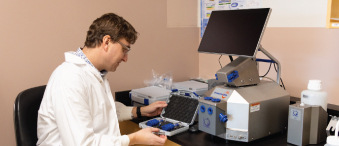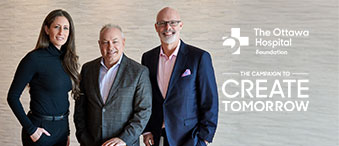In 1961, Marsha Linehan was admitted to the Institute of Living in Hartford, Connecticut where she was misdiagnosed. She was only 18, and her experience in the psychiatric facility led her to become a therapist herself. She made a vow that when she found a way out of the emotional turmoil she was in, she’d help others too.
A decade later, she became Dr. Marsha Linehan, having earned a PhD in psychology. Using both her lived experience and education, she developed a treatment to help others who shared her condition: borderline personality disorder, or BPD. It was not until 2011 that Dr. Linehan broke through the stigma, sharing publicly that she herself had lived experience with borderline personality disorder.
What is borderline personality disorder?
People with BPD often struggle to regulate their emotions and experience their lives as so painful that death seems a reasonable option. Common experiences include: a high sensitivity to emotional cues, with intense reactions and long-lasting feelings; feelings of emptiness and struggles with a sense of self; intense interpersonal sensitivity and chaotic relationships; and urges to engage in self-harm and other impulsive, potentially harmful behaviours.
In the past, BPD was a poorly understood diagnosis, and it still comes with a lot of stigma. It also requires a different approach than some other diagnoses like anxiety or depression. The best-known and most widely researched effective therapy is called DBT, or dialectical behaviour therapy.
“When I came to the hospital, I could not explain how I was feeling at all. Now, after four years, I can articulate how I’m feeling after an investment of huge amounts of individual and group therapy.”
– Anita Descheneau
What is DBT?
To understand DBT, it’s important to understand its predecessor, cognitive behavioural therapy, or CBT. In traditional CBT, the goal is learning how to change your thoughts and behaviours. DBT provides a balance between change and acceptance: there’s the complete acceptance of yourself and your situation “in this moment,” combined with learning the necessary behavioural changes to build a life that feels worth living. The combination is critical since therapy focusing primarily on the need to change can feel especially punitive or blaming for people with BPD, while therapy focusing only on acceptance can leave the patient feeling their problems are not being taken seriously.
While DBT was developed for people diagnosed with BPD, it has been modified for other conditions, including substance use, depression, PTSD, and eating disorders.
DBT at The Ottawa Hospital
Our Dialectical Behaviour Therapy Skills Group — or DBT-Lite Program — is a 21-week psychoeducation and skills training group that has been running at the Ottawa Hospital since 2011, facilitated by our highly skilled, and deeply compassionate, experts like Dr. Christine Dickson.
The program includes four modules: mindfulness, distress tolerance, emotion regulation, and interpersonal effectiveness. Participants get to practice skills in a group setting and receive support from other members.
On the first day in the program, participants learn the “biosocial theory.” It is a nonjudgmental explanation of how and why some people have so much difficulty regulating their emotions and controlling their behaviour.
The response from group members after learning this for the first time can be powerful, with many making statements like: “This is the first time I have made sense of why I am as I am,” or, “This is the first time I have met others like me.”
And when participants complete the program, they often describe the program as “life-changing.” They leave with more self compassion, less self stigma, and the skills to lead a more meaningful, functional life.

Read our Q&A with Dr. Christine Dickson.
Community support for The Ottawa Hospital helps specialized programs like the DBT-Lite Program reach patients when they need it the most. When you support our team of dedicated healthcare professionals, you help us bring hope to patients.




